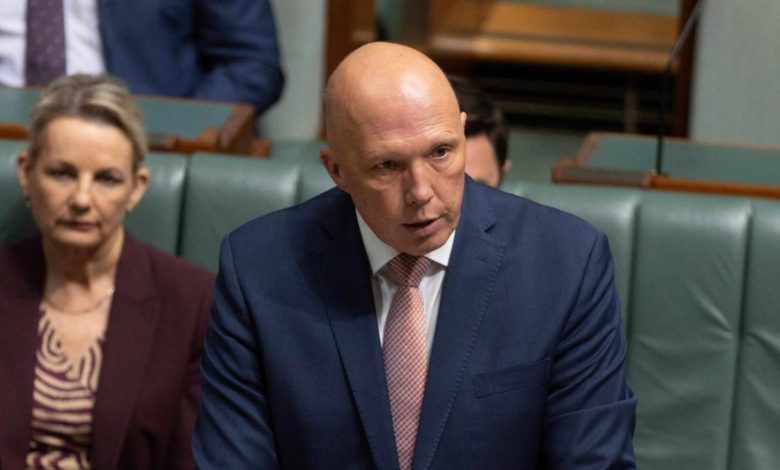Mark Riley: Refusing to compromise could result in the Liberals being locked out of the negotiations

Peter Dutton’s parliamentary strategy is simple. It can also be simply effective. But it carries a lot of risk on the way to the intended reward.
However, Dutton goes all out.
Anthony Albanese says the simple approach can be summed up in one word: “No”.
He believes it is a plan to block any major government reform at any cost. And he has revived a label he put on the Abbott opposition to emphasize the point, claiming that Dutton is now leading a “no-alition,” not a coalition.
The Abbott method was typically uncompromising. She resisted everything to force the government into endless, agonizing negotiations with independents and smaller parties in both houses.
This left an indelible impression on voters of a government without control and a parliament in perpetual turmoil. The major reforms that were implemented were immediately condemned, not praised, by Abbott.
It was a campaign aimed at one thing above all – power. And it worked.
Dutton knows he’s being labeled a beachcomber and a sniper for using the Abbott Method, but is willing to take the risk if it brings the same ultimate reward.
He has brought all but one of his numbers into opposition to three major policies that the coalition could easily support with minor changes in other circumstances.
He says “no” to the government’s $15 billion manufacturing plan, $10 billion social and affordable housing reforms and the so-called “safeguard mechanism” at the heart of Labor’s emissions reduction targets.
The first risk in imposing this broad-based blockade is that Dutton will be perceived by the puntocracy as an opportunist and obstructionist.
The second is that by staying out of the negotiation of these big ideas, he is dealing directly with his nemesis – the Greens.
Labor has a majority in the House of Representatives. The apartment bill went through there yesterday. Tasmanian Liberal Bridget Archer crossed the ground to support them. The manufacturing invoice will also go through the representatives.

But without coalition support, the government needs the Greens and two crossbenchers to get anything through the Senate.
So Dutton’s tactics have given the Greens the absolute balance of power on all three issues, and party leader Adam Bandt is under intense pressure from his base to use that pressure to impose the more inflexible tenets of the party’s political platform, particularly on the climate totem issue.
The government believes it can strike deals with the Greens on manufacturing and housing reforms.
That would be good for Albanese and give him consensus wins, while Dutton would have to explain why he gave the Greens the opportunity to amend the reforms further to the left and away from his own conservative base.
The safeguard mechanism gives Dutton’s plan the best chance of success, albeit at the cost of reviving the climate wars.
As is all too often the case in modern politics, he would derive considerable political benefit from the ashes of the demise of a major political reform.
Bandt seems determined to push through his base’s fundamentalist objection to the possibility that coal and gas operations could last longer if they are able to offset their emissions through the protection mechanism.
His position is not yet negotiable. Either coal and gas are eliminated entirely, or no deal is made.
It brought back vivid memories for Labor of how the Greens ended the Carbon Pollution Reduction Scheme in 2009 because it was not absolutely and perfectly in line with their beliefs.
Now the Greens are preparing to make perfect the enemy of good again in a bid to sink the safeguard mechanism and the government’s envisioned path to net-zero emissions.
The risk then is that the Greens will hand Albanese its most humiliating defeat yet and Dutton the richest of political rewards.



